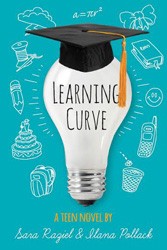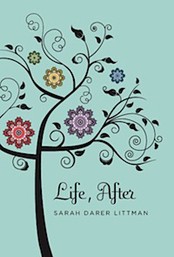Joan Skraggs, living a rough, hardscrabble life on a Pennsylvania farm with an abusive father and unsympathetic brothers, aspires to a better life. She loves language and literature, although her exposure to the finer points of each has been limited and basic. When her cold, heartless father tells her that her education is at an end and burns her only books, the treasures of her soul, Joan runs away and lands fortuitously at the home of a wealthy Jewish family as a maid, or as she styles it a “hired girl.” Suddenly her vistas open and her life seems filled with adventure and possibility. Joan’s spunky, caring and open personality make her a heroine to care deeply about as she proceeds to grow from an uneducated bumpkin with an avid curiosity, romantic nature and kind heart into a refined young woman with a rich and productive life ahead. The Rosenbachs, the Baltimore Jewish family for whom she works, are well ensconced in the Jewish community and the reader, along with Joan, learns much about the Jewish society of the early 1900s in that part of the country. The Rosenbach family members are drawn by the author with care. Each family member has a set of very human flaws but there is great warmth, as well. They see special qualities in this young girl and each in his or her own way manages to help Joan overcome circumstances and the growing pains of youth.
A quintessential portrait of America and all it has stood for since its founding, this book encapsulates hope for the downtrodden, the fluidity of class in the New World, and the potential for those with talent and grit to rise above their humble beginnings and shine. But in spite of these lofty themes, this feels nothing like a treatise. It’s a fun book to read and a page-turner as the heroine’s quirky and charming personality makes the reader eager to see what her next escapade can possibly be.
The writing is sublime and humor abounds. The characters seem as real as one’s own family and the historical context is interesting and dimensional. Fine art has its moment here, as well. Several well-known canvases or sculptures which Joan might have seen during the time period are used as themes to separate the various sections of the story.
An unusual novel, brilliantly executed, this book is well worth the reader’s time and will not be easily forgotten.
Highly recommended for ages 12 and up.
Interview with Laura Amy Schlitz
Jewish Book Council and Laura Amy Schlitz sat down to talk about Laura’s young adult novel The Hired Girl which recently won both the Sydney Taylor Book Award and the National Jewish Book Award.
Michal Hoschander Malen: Joan is a character absolutely bursting with personality, charm, wit and exuberance. Did you model her on anyone in life or in literature?
Laura Amy Schlitz: No, I didn’t — in fact, I seldom base a major character on anyone I know. When I begin a novel, I know I’m going to spend a lot of time with the people in it, so I like to begin by not knowing them too well. That way, there are mysteries to solve. Curiosity helps me to keep writing.
MHM: Joan is remarkably free of prejudice, unusual in her time (and in any other). She is also very open to the world around her and able to learn from a variety of people and experiences, also a struggle for many young people. Joan develops these characteristics in spite of a singularly harsh youth. Do you think young readers can subtly learn something from this?
LAS: Now here I disagree with you: I think Joan shares many of the prejudices of her time. Joan is a girl of the early twentieth century, a time when religious prejudice and ethnic stereotypes were rife. Early in the book, for example, Joan takes pride in telling Malka that her forebears were Scottish and German, not Irish; she shares the widely held belief that the Irish were inferior. When she first meets Kitty, Anna’s Irish cook, she observes that her kitchen is spotless, and discards her belief that the Irish are dirty.
And while similar prejudices and stereotypes of the time make Joan’s love for David is truly forbidden and her friendship with the Rosenbachs is triumphant, Joan is largely insulated from antisemitism in the country. She lives in a very small world, and most of what she knows about the Jews – or thinks she knows – comes from Ivanhoe and the Bible. When she first meets the Rosenbachs, she’s dependent on them for a safe place to sleep. By the time she discovers that they’re Jewish, she has already been won over by Solly’s kindness and Mrs. Rosenbach’s elegance. The Rosenbachs are the kind of people Joan aspires to be: cultivated, literary, and — this is important to Joan — fashionably dressed.
If Joan is admirable, it’s because she thinks for herself. She has prejudices, but they aren’t deep-rooted, and she’s not psychologically driven to despise others. I try not to think didactically when I write a story, but I would be delighted if young readers sought to emulate Joan by seeing the world for themselves.
Related Content:
- Interview with Gavriel Savit, author of Anna and the Swallow Man
- Janice Cooke Newman: Why I Write Historical Fiction
- Mary Glickman: The Historical Me
Michal Hoschander Malen is the editor of Jewish Book Council’s young adult and children’s book reviews. A former librarian, she has lectured on topics relating to literacy, run book clubs, and loves to read aloud to her grandchildren.



